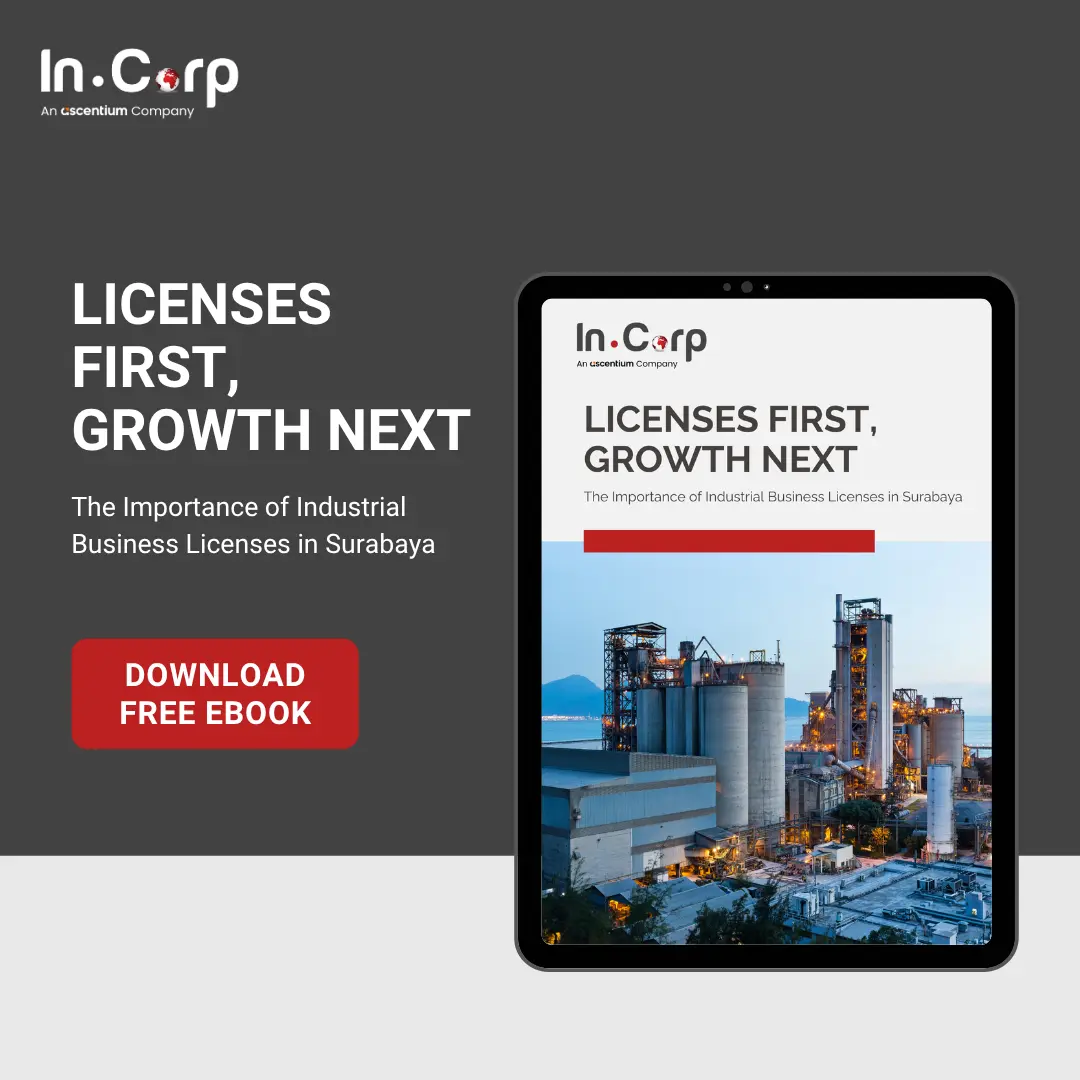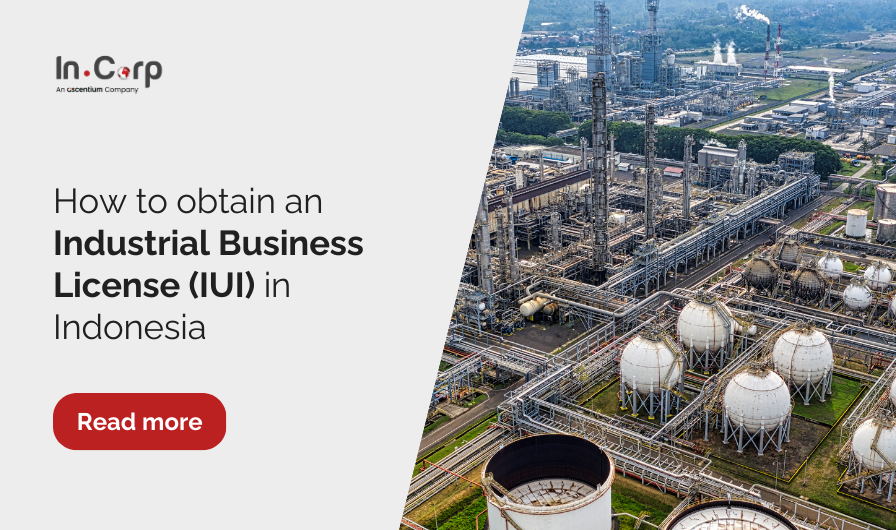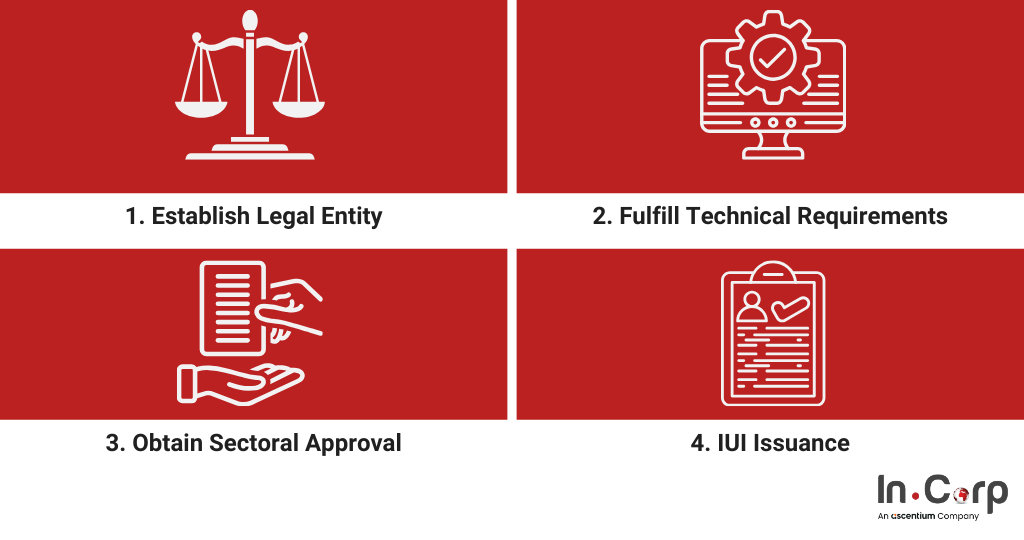Indonesia’s dynamic industrial sector offers vast opportunities for entrepreneurs and investors. However, businesses must obtain the Industrial Business License (IUI) to operate legally within this sector. This license is crucial for manufacturing, processing, or assembling companies.
However, the licensing process can be overwhelming due to the complexity of local rules. This guide breaks down the steps to help you secure your industrial license smoothly and efficiently.
What is an Industrial Business License (IUI)?
An Industrial Business License (IUI) is an official permit issued by the Indonesian government, authorizing companies to conduct industrial activities. It ensures that businesses comply with national standards related to safety, environmental protection, and operational procedures.
The industrial license is distinct from other licenses, such as the Trading Business License (Surat Izin Usaha Perdagangan, or SIUP), which concerns trading activities.
Legal Framework
The requirement for an IUI is grounded in several Indonesian regulations, including:
- Government Regulation No. 107 of 2015 on Industrial Business Licenses: Mandates that all industrial businesses, regardless of scale, obtain an industrial license.
- Minister of Industry Regulation No. 30/2019: Detailing the procedures and requirements for obtaining an Industrial Business License.
- Regulation of Government No. 24 of 2018 on the Electronically Integrated Business Licensing Service: Introducing the Online Single Submission (OSS) system for streamlined licensing processes.
These regulations collectively establish the framework for industrial licensing, ensuring that businesses operate within the legal and regulatory boundaries set by the Indonesian government.
Who Needs an Industrial Business License?
In Indonesia, the Industrial Business License (IUI) is mandatory for any business engaged in industrial activities, which is defined as converting raw materials into finished or semi-finished products. This includes manufacturing, assembling, modifying, packaging, or processing goods for commercial purposes.
The following entities must obtain an Industrial Business License (IUI):
- Large, medium, and small-scale industrial companies.
- Foreign investment (PMA) companies are engaged in industrial sectors.
- Domestic investment (PMDN) companies operating industrial facilities.
- Industrial businesses located within industrial estates or outside designated zones.
The Indonesian Ministry of Industry uses a classification system based on production capacity and employee count to determine the scale of operations.
Understanding whether your business qualifies as industrial is crucial to avoid legal complications, such as penalties or operational permits revocation.
Why is it important for your business
Holding an industrial license provides several benefits:
1. Legal Legitimacy and Compliance
An industrial license confirms that a business operates according to national regulations. This legal recognition is vital when dealing with government agencies, investors, or financial institutions. Without it, enterprises risk suspension or closure.
2. Access to Government Incentives
The Indonesian government offers industrial license holders various fiscal and non-fiscal incentives to stimulate industrial development and reduce costs. These include:
- Tax allowances and reductions, particularly for industries in high-priority sectors or underdeveloped regions.
- Import duty exemptions on capital goods such as machinery and equipment.
- Value-added tax (VAT) facilities for raw materials and intermediate goods.
- Simplified land acquisition and utility support within industrial zones.
3. Participation in Government Projects
Many government projects and tenders require participants to be officially licensed. Holding an industrial license ensures businesses meet all regulatory criteria, enhancing their credibility and eligibility to participate in such opportunities.
4. Smooth Expansion and Scaling
With this license, businesses can more easily expand operations, apply for additional permits, and establish branches or factories in different locations. It also simplifies processes for licensing upgrades or renewals through the OSS system.
5. Enhanced Market Credibility and Trust
An industrial license ensures that the business operates responsibly, complies with national standards, and is committed to long-term sustainability. This credibility:
- Builds trust with customers, investors, and business partners.
- Improves access to financial services and credit facilities.
- Reduces scrutiny during audits and inspections.
- Enhances the company’s profile in both domestic and international markets.
Industrial Business License vs. Trading Business License: Key Differences
While the industrial license and the Trading Business License (SIUP) are essential for business operations in Indonesia, they cater to distinct business activities.
Understanding their differences is crucial for selecting the correct license for your operations. Here’s the breakdown:
| Aspect | Industrial License | SIUP |
| Purpose | Authorizes businesses to engage in industrial and manufacturing activities | Authorizes businesses to engage in trading, retail, and distribution. |
| Issuing Authority | Ministry of Industry | Ministry of Trade |
| Activities | Production, assembly, packaging, and goods processing | Buying, selling, exporting, and importing goods |
| Mandatory For | Manufacturing companies and factories | Wholesalers, distributors, retailers, importers, and exporters |
| Location Requirement | Within industrial zones (with exceptions) | No specific zone restrictions |
| Associated Regulations | Industrial regulations and permits | Trade regulations and permits |
Read more: Understanding the Different Types of Business License in Indonesia
Can a Company Hold Both Licenses?
Companies that operate in both manufacturing and trade must possess both licenses. For example, a company that produces goods and then sells or exports them would need an industrial license and a SIUP to cover the full scope of operations. Each license complements the other depending on business activities.
How to obtain an Industrial License in Indonesia
Acquiring this license in Indonesia involves several steps under the Online Single Submission (OSS) system. The process is standardized to ensure transparency and ease for all business scales.
Below is the step-by-step guide:
1. Establish a Legal Entity
Before applying for this license, the business must be legally established as one of the following entities:
- PT (Perseroan Terbatas): Local or foreign limited liability company
- CV (Commanditaire Vennootschap): Limited partnership (for small-scale businesses)
- Foreign Investment Company (PMA): For foreign-owned companies
Read more: Navigating business incorporation in Indonesia
2. Fulfill Technical Requirements
The Ministry of Industry may request additional information depending on the scale and sector of the business. This may include:
- Production process description
- Factory layout
- Machinery and technology used
- Environmental management documentation (UKL/UPL or AMDAL for high-impact industries)
3. Obtain Sectoral Approval (If Required)
For specific industrial sub-sectors, sector-specific ministries (e.g., Agriculture, Health, Energy) may need to review and approve the application. This is especially relevant for food, chemicals, or hazardous materials industries.
4. License Issuance
Once all requirements are met and verified, the industrial license is issued digitally via the OSS system. The license contains details such as business name, industrial activities, location of operation, and production capacity.
Common mistakes when obtaining an Industrial Business License
Getting an industrial license in Indonesia can be straightforward. However, many businesses face delays due to common mistakes. Here’s what to watch out for:
Incorrect Business Classification
Many applicants mistakenly classify their business as a trading or service entity instead of an industrial one. This misclassification leads to applying for an SIUP instead of an industrial license, which can delay operations and require document reprocessing.
Incomplete or Outdated Documents
Missing or expired documents, such as a tax number (NPWP), business domicile certificate, or company deed, can halt the application. Ensure that all supporting documents are up to date and verified.
Invalid Business Address
Using a residential or commercially zoned address for industrial purposes can result in rejection. The address must be in an approved industrial or commercial zone with a valid lease and ownership document.
Ignoring Environmental Requirements
Many industries, such as Environmental Management Effort (UKL-UPL) or Environmental Impact Assessment (AMDAL), need environmental permits. Not submitting these can delay or deny your application.
Failing to Update OSS Profiles
After getting an industrial license, some businesses forget to update their OSS profile when there are changes in location, operations, or ownership. This can cause issues during inspections or renewals.
Skipping Sectoral Approvals
Specific sectors, including pharmaceuticals, food processing, and chemicals, require additional approvals from related ministries. Skipping these can result in incomplete licensing, even if the IUI is issued.
Always check for industry-specific regulations based on your business classification code (KBLI).
Licenses First, Growth Next: The Importance of Industrial Business Licenses in Surabaya

Seamlessly obtain your IUI in Surabaya with InCorp
Navigating the process of obtaining an industrial license can be challenging. Working with a professional licensing partner is the most brilliant move if you plan to start or expand your manufacturing operations in Surabaya.
InCorp Indonesia (An Ascentium Company) offers end-to-end business license support in Surabaya to help you secure your industrial license quickly and compliantly.
Why Choose InCorp?
- Expert assistance tailored to industrial licensing
- Fast, compliant OSS-based processing
- Guidance on zoning, environmental, and sectoral approvals
- Local insights into Surabaya’s industrial regulations and zones
Don’t let bureaucracy slow your growth. Fill out the form below and start your industrial venture confidently.
Get in touch with us.
What you'll get
A prompt response to your inquiry
Knowledge for doing business from local experts
Ongoing support for your business
Disclaimer
The information is provided by PT. Cekindo Business International (“InCorp Indonesia/ we”) for general purpose only and we make no representations or warranties of any kind.
We do not act as an authorized government or non-government provider for official documents and services, which is issued by the Government of the Republic of Indonesia or its appointed officials. We do not promote any official government document or services of the Government of the Republic of Indonesia, including but not limited to, business identifiers, health and welfare assistance programs and benefits, unclaimed tax rebate, electronic travel visa and authorization, passports in this website.




